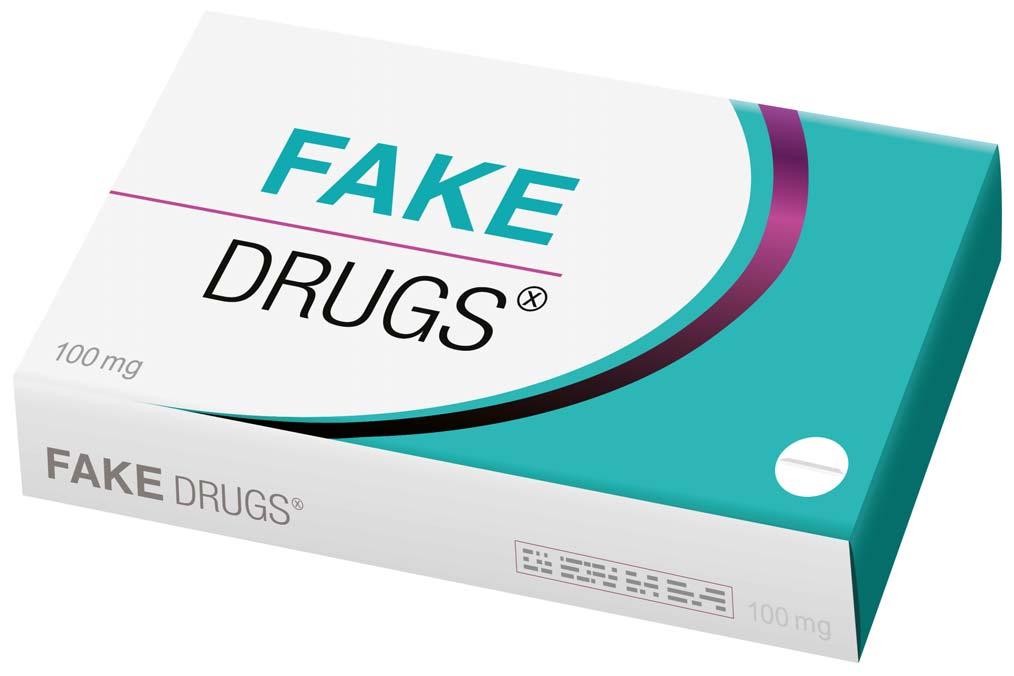
4 minute read
Check(o) for Authenticity
By GIRIRAJ AGARWAL
IIT Kanpur-based Transpacks Technologies has developed low-cost anti-counterfeiting 3D labels to identify fake products, with help of a grant from the U.S.India Science and Technology Endowment Fund.
Advertisement
Counterfeit goods are one of the greatest risks to social and economic development as well as the health and lives of people. The trade in fake goods is now prolific, mainly because of the exponential rise in counterfeiting activities on the Internet in recent years. So, how do we know if a product is genuine, especially when barcodes and holograms can be replicated and affixed to duplicate products?
Enter Checko, a low-cost anti-counterfeiting 3D label. These labels are tamper-proof, cannot be cloned and can be used to verify the authenticity of a product using even a low-end smartphone, without requiring any form of communication. Checko has been developed by Transpacks Technologies, based at the Indian Institute of Technology Kanpur, in collaboration with California-based Ampora LLC. The project received a grant from the U.S.-India Science and Technology Endowment Fund (USISTEF), which supports U.S.-India entrepreneurial collaborations to address the theme of “commercializing technologies for societal impact.”
Excerpts from an interview with Sudhanshu Bahadur, chief executive officer of Transpacks Technologies.
What are some of the unique features of the Checko labels?
The copy-proof labels can be scanned by a 4 megapixel camera, even when the communication network becomes unavailable. Our three-dimensional Checko labels are printed using a random pattern and have a thickness of 30 to 50 microns. The three-dimensionality ensures that the label cannot be photocopied, while the random pattern guarantees that the label cannot be reproduced. The strength of the solution is such that a particular Checko label cannot be reproduced by even us—the original manufacturers of this label. This random pattern is based on a naturally occurring phenomenon, known as physically unclonable function (PUF). This random 3D pattern is combined with a QR code that makes it machine-readable using an artificial intelligence-based smartphone app.
Our app is based on image processing and machine learning algorithms that check each label on three aspects. First, it checks if the label is a true 3D label, or a 2D photocopy. Second, it verifies if this label was manufactured using our proprietary printing processes. Third, it checks if the image of this label exits in our database. The proprietary printing techniques, along with the proprietary machine learning, guarantee that each label is 100 percent copy-proof and trustworthy.
Could you explain the process of developing and distributing the labels, as well as that of verification by the app?
The Checko 3D label is initially printed on specialized screen printing equipment. Thereafter, the printing process is moved to a specialized QR code printing and digital imaging machine. These mega rolls are then slit into individual rolls, packed and sent to the brand to be applied on individual units. Brands can choose to apply Checko tags using specialized application machines or even manual applicators for smaller quantities.Once the Checko labels are affixed to product units, they are shipped through the brand’s supply chain to retail outlets for purchase by the end customers. Customers can download the Checko app, or the brand app, scan the product and, in a blazing fast speed of under four seconds, determine if the product is genuine or fake.
How did the grant from the U.S.-India Science and Technology Endowment Fund support your endeavors?
The USISTEF grant has been crucial in enabling the Indian partner to hire critical print and technology experts to accelerate product development. The equipment grant was a key enabler for adapting the current print equipment for the production of the specialized labels. For the U.S. partner, Ampora LLC, it has enabled the company to develop and demonstrate a key product paradigm of blockchain built on top of the secure Checko technology for supply chain tracking. This would enable traceability of goods such as food products, medicines, liquor and wine, from the production source through the supply chain to the retailer outlet.
What difficulties did you face in developing and marketing the product? How has been the market response so far?
Transitioning a new technology from the lab to the production environment is very challenging, and Checko was no exception. Two transformative generations of print process technologies had to be developed before this product could be manufactured in large volumes. Similarly, developing specialized image processing algorithms, especially to run on a small device like a smartphone, has been a challenging process. It took our team over two years to reach complete accuracy. However, we are now ready to hit the market and have been enthusiastically welcomed by big and small companies, including some marquee multinational companies in the liquor and agricultural products arena.
Have you tried to use the product to check the authenticity of N-95 masks or personal protective equipment (PPE) kits in the wake of the coronavirus pandemic?
We will be supplying our Checko labels to E-Spin Nanotech Pvt. Ltd, a Kanpur-based start-up manufacturing N-95 masks. We have also reached out to a large potential COVID-19 vaccine producer in India to enable tracking of COVID-19 vaccines throughout the supply chain.
Would you like to share with us any other initiative that Transpacks Technologies is working on?
There are two pathbreaking developments we hope to bring to the market in 2021. First, we want to include printing directly on laminate and other surfaces, thus reducing the need for labels and their application on product packaging. Second, we have developed a Checko blockchain solution, which we expect to market and sell globally, especially in food security applications in the U.S.










